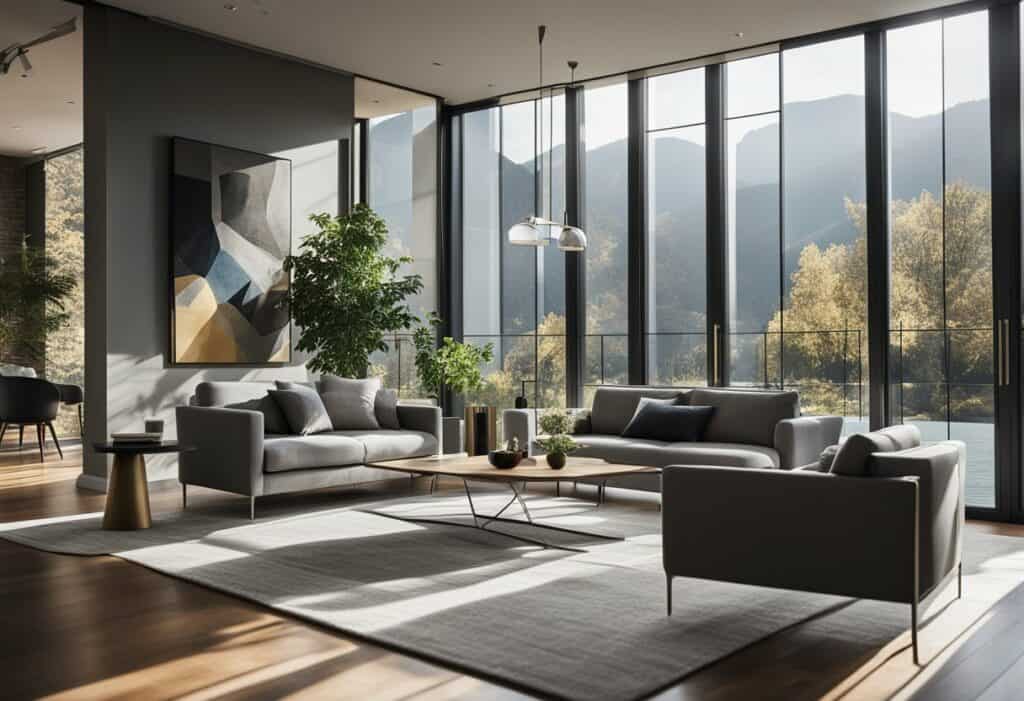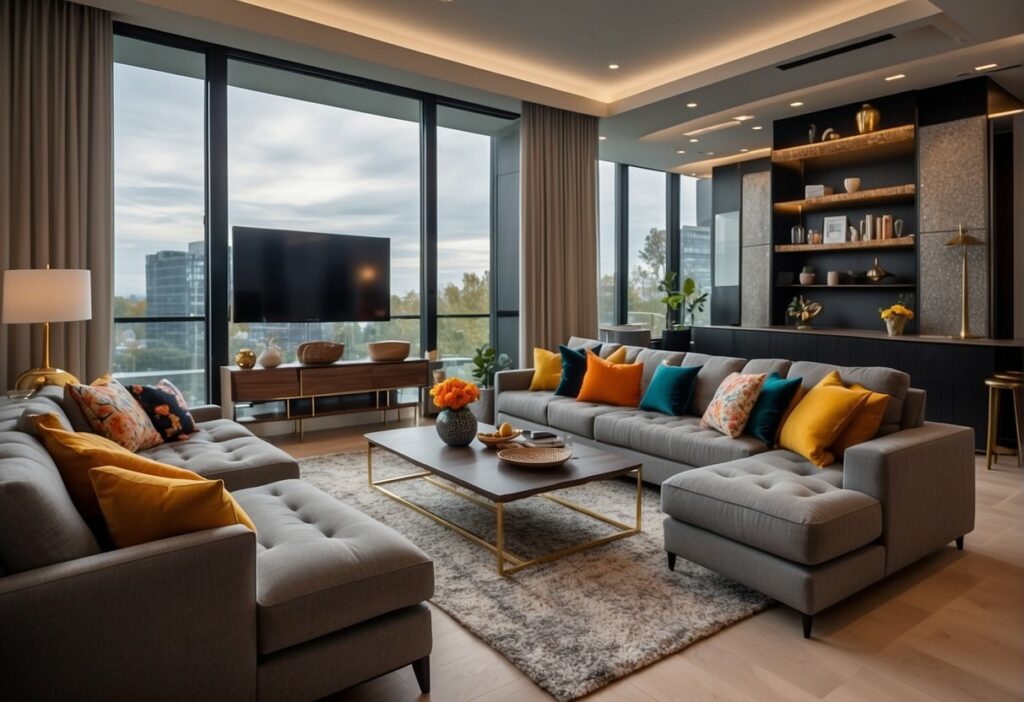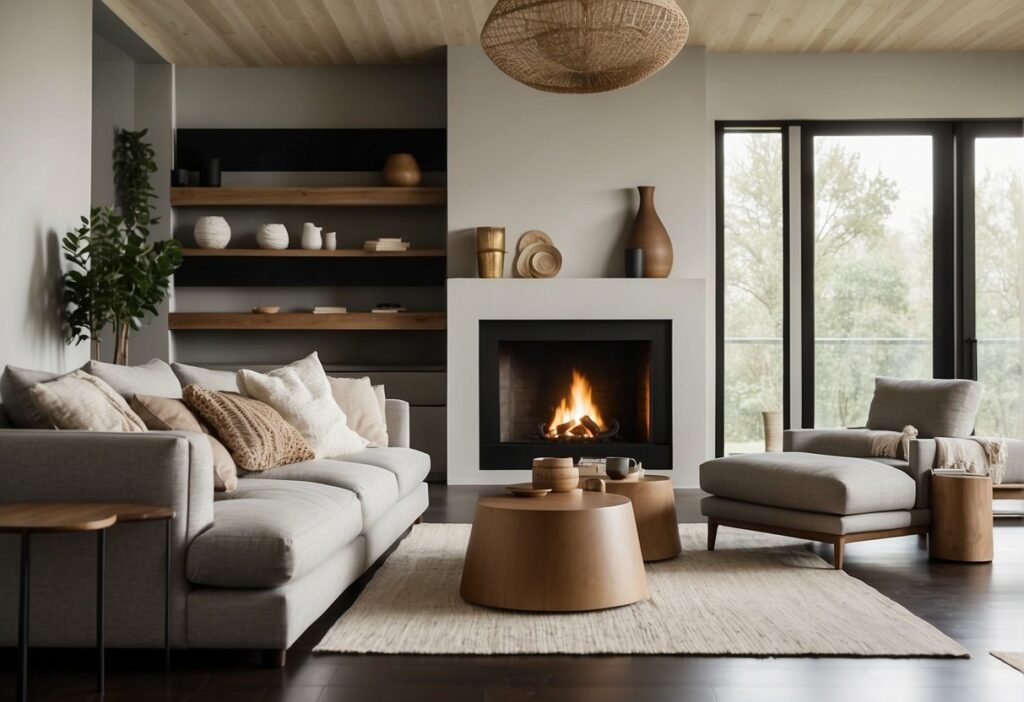Interior Design Subjects: Exploring the Latest Trends and Techniques
If you have a passion for design and want to create spaces that are both functional and beautiful, then interior design might be the perfect career for you. Interior design is a creative field that involves designing and decorating spaces to meet the needs of clients. It requires a combination of creativity, innovation, problem-solving, and effective communication skills.

To become an interior designer, you will need to have a solid foundation in the principles of design, including color theory, space planning, and furniture design. You will also need to be familiar with the latest trends and technologies in the industry, as well as have a good understanding of the business side of the profession. In this article, we will explore some of the key subjects that you will need to study if you want to become an interior designer, and provide insights into the career and industry.
Key Takeaways
- Interior design is a creative field that requires a combination of creativity, innovation, problem-solving, and effective communication skills.
- To become an interior designer, you will need to have a solid foundation in the principles of design, including color theory, space planning, and furniture design.
- In addition to the technical and creative skills required for the profession, you will also need to have a good understanding of the business side of the industry, including marketing, budgeting, and project management.
Foundations of Interior Design

As an aspiring interior designer, you must have a solid foundation in the creative, technical, and business aspects of the interior design profession. In this section, we will explore the different aspects of interior design that you need to be familiar with.
History and Theory
To be a successful interior designer, you need to have a good understanding of the history of interior design and the different design theories that have emerged over time. This knowledge will help you to appreciate the evolution of interior design and to create designs that are grounded in a solid theoretical foundation.
Principles and Elements
Interior design is all about creating spaces that are functional, aesthetically pleasing, and comfortable. To achieve this, you need to have a good understanding of the principles and elements of design. These include line, shape, form, texture, colour, balance, rhythm, and proportion.
Technical Skills and Tools
Interior design requires a range of technical skills and tools. These include drafting, computer-aided design (CAD), technical graphics, and knowledge of building codes and regulations. You must also have a good understanding of the different materials and finishes that are used in interior design.
Professional Practice
To succeed as an interior designer, you need to have a good understanding of professional practice. This includes project management, communication, and workplace practices. You must also have a good understanding of the business side of interior design, including budgeting, marketing, and client relations.
Global Perspectives
Interior design is a global community, and you need to have a good understanding of the different perspectives that exist around the world. This includes an understanding of different cultures and design styles, as well as an appreciation of the different challenges that designers face in different parts of the world.
Health and Wellness Considerations
Finally, as an interior designer, you must be aware of the health and wellness considerations that come with designing spaces. This includes an understanding of ergonomics, acoustics, lighting, and air quality. You must also be aware of the different ways in which design can impact mental health and wellbeing.
In summary, to be a successful interior designer, you need to have a solid foundation in history and theory, principles and elements, technical skills and tools, professional practice, global perspectives, and health and wellness considerations. By developing these skills, you will be able to create spaces that are functional, aesthetically pleasing, and comfortable for your clients.
Career and Industry Insights

If you are interested in pursuing a career in interior design, there are many educational pathways available to you. You may choose to study interior design at a university or college, or you may opt for a more vocational training programme. Some institutions may require an admissions test, and tuition fees can vary depending on the programme and the institution.
Educational Pathways
Interior design certification is available through various professional organisations, such as the British Institute of Interior Design (BIID) or the Chartered Society of Designers (CSD). These certifications can demonstrate your competence and commitment to the industry, and may enhance your career opportunities.
Career Prospects
Interior design is a creative and dynamic industry, and career opportunities are available in many areas, including construction, materials, and administration. Interior designers may work on residential or commercial projects, and may be involved in all stages of the design process, from initial planning to final execution.
Industry Practices
Innovation and creativity are essential in the interior design industry, and designers must stay up-to-date with the latest design application and materials. Interior designers must also have strong communication and planning skills to effectively collaborate with clients, contractors, and other professionals.
Interdisciplinary Connections
Interior design is a multidisciplinary field, and designers may work with professionals in other areas, such as architectural design, graphic design, and product design. Interior designers may also need to have some knowledge of entrepreneurship, marketing, and finance.
Business Acumen
Interior designers must have some business acumen to succeed in the industry. They must be able to bid on projects, negotiate contracts, and manage budgets. They must also be able to effectively market their services and manage their finances.
Lifelong Learning
In order to stay competitive in the interior design industry, it is important to be a lifelong learner. Interior designers must stay up-to-date with the latest design trends and technologies, and may need to conduct research in order to develop new design concepts. They may also consider becoming a teacher or researcher to further contribute to the industry.
Frequently Asked Questions

What A-level subjects should you choose to pursue a career in interior design?
If you are interested in pursuing a career in interior design, it is recommended that you choose A-level subjects such as Art and Design, Textiles, Graphics, and 3D Design. These subjects will provide you with a strong foundation in the principles of design, which will be useful in your future studies and career.
Can you tell me about the first-year curriculum for an interior design degree?
The first year of an interior design degree program typically focuses on building a foundation in the principles of design, including colour theory, spatial relationships, and design history. You will also learn about the technical aspects of design, such as drafting and computer-aided design (CAD) software.
Which high school courses are recommended for students interested in interior design?
If you are interested in pursuing a career in interior design, it is recommended that you take courses in art, design, textiles, and 3D design. These courses will provide you with a strong foundation in the principles of design, which will be useful in your future studies and career.
What are the key study areas for interior designing at the 11th-grade level?
At the 11th-grade level, key study areas for interior design include art, design, textiles, and 3D design. These subjects will provide you with a strong foundation in the principles of design, which will be useful in your future studies and career.
Which university in Singapore is renowned for its interior design programme?
The Nanyang Academy of Fine Arts (NAFA) is renowned for its interior design programme in Singapore. The programme is designed to provide students with a strong foundation in the principles of design, as well as the technical skills necessary to succeed in the field.
Are there lucrative career opportunities in the field of interior design?
Yes, there are many lucrative career opportunities in the field of interior design. Interior designers can work for architecture and design firms, or they can start their own businesses. Some interior designers also specialize in specific areas, such as hospitality or healthcare design, which can be very lucrative.



